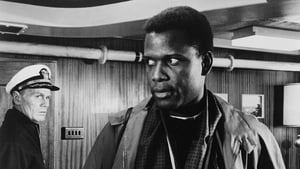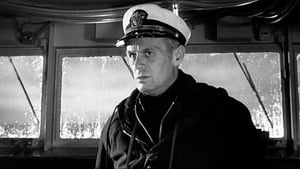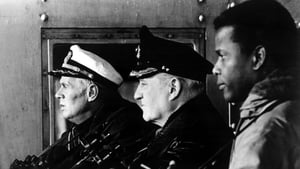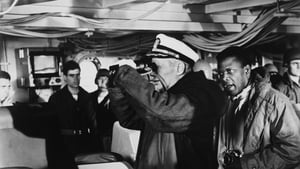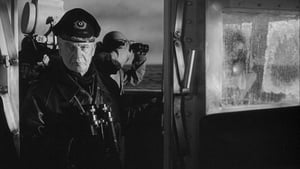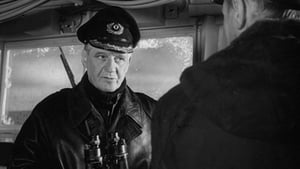Contact: info@alwanfilm.com
Video Sources 0 Views
- Watch trailer
- The Bedford Incident

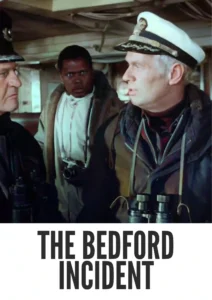
Synopsis
Table of Contents
ToggleReview: The Bedford Incident 1965 Colorized – Delving into Cold War Tensions

Introduction
In the midst of Cold War paranoia and nuclear brinkmanship, The Bedford Incident 1965 emerges as a chilling reminder of the dangers that lurk beneath the surface of international diplomacy. Directed by James B. Harris, this taut thriller plunges viewers into the heart of a high-stakes naval confrontation, exploring themes of power, obsession, and the human cost of warfare. In this article, we delve into the world of “The Bedford Incident 1965,” examining its historical context, narrative complexity, and lasting impact on the cinematic landscape.
Check The Full Colorized Movies List
Check Our Colorized Movies Trailer Channel
Understanding The Bedford Incident 1965 Colorized: Director, Cast, and Genre
The Bedford Incident 1965 is the brainchild of director James B. Harris, whose keen eye for tension and suspense elevates the film beyond mere genre fare. Anchored by a stellar cast including Richard Widmark, Sidney Poitier, and James MacArthur, the film explores the dynamics of power and authority within the confines of a claustrophobic naval vessel. Blending elements of psychological drama, military thriller, and Cold War allegory, “The Bedford Incident 1965” defies easy categorization, offering audiences a gripping exploration of the human psyche under duress.
Exploring the World of The Bedford Incident 1965 Colorized: Plot and Characters
At its core, The Bedford Incident 1965 centers on the eponymous destroyer and its crew as they navigate the treacherous waters of the North Atlantic. When the ship encounters a Soviet submarine, Captain Eric Finlander, played with chilling intensity by Richard Widmark, becomes increasingly obsessed with tracking and engaging the enemy vessel. As tensions escalate and paranoia takes hold, the crew finds themselves teetering on the brink of disaster, grappling with questions of loyalty, duty, and the moral implications of their actions.
The film’s ensemble cast delivers standout performances, with Sidney Poitier shining as a journalist caught in the crossfire of Finlander’s increasingly erratic behavior. James MacArthur brings depth and vulnerability to the role of the ship’s young doctor, serving as a voice of reason amidst the escalating chaos. Together, they form a compelling ensemble, each grappling with their own demons as they confront the specter of nuclear annihilation.
The Art of Cold War Thrillers
The Bedford Incident 1965 emerges as a quintessential example of the Cold War thriller genre, tapping into the anxieties and uncertainties of the era. From its claustrophobic setting to its relentless pacing, the film ratchets up tension with each passing moment, immersing viewers in a world on the brink of catastrophe. Harris’s direction is masterful, evoking a sense of claustrophobia and paranoia that permeates every frame.
Cold War Tensions: A Brief History
The Cold War, a period of geopolitical tension between the United States and the Soviet Union, cast a long shadow over global affairs throughout much of the 20th century. Fueled by ideological differences and the threat of nuclear annihilation, the Cold War spawned a host of cultural artifacts, from spy novels to blockbuster films, that explored the anxieties and uncertainties of the era.
The Bedford Incident 1965 and Its Cold War Context
Set against the backdrop of Cold War tensions, The Bedford Incident 1965 serves as a chilling allegory for the dangers of unchecked aggression and militarism. As Captain Finlander becomes increasingly fixated on engaging the Soviet submarine, the film exposes the folly of brinkmanship and the human cost of war. In its portrayal of paranoia and obsession, “The Bedford Incident 1965” holds a mirror to the anxieties of its time, offering a sobering reminder of the fragility of peace in a world on the edge.
The Debate Over Military Escalation
The Bedford Incident 1965 raises timely questions about the morality and efficacy of military escalation in the pursuit of geopolitical objectives. As Captain Finlander’s single-minded pursuit of the Soviet submarine leads to escalating tensions and mounting casualties, the film forces viewers to confront the ethical dilemmas inherent in the pursuit of power and dominance. In an era marked by proxy wars and nuclear brinkmanship, “The Bedford Incident 1965” remains a potent reminder of the dangers of unchecked aggression and the need for diplomatic solutions to global conflicts.
Examining The Bedford Incident 1965 as a Cold War Thriller
Viewing The Bedford Incident 1965 through the lens of Cold War paranoia offers a fresh perspective on its narrative complexity and thematic richness. From its exploration of power dynamics to its critique of military hubris, the film resonates with contemporary audiences grappling with similar anxieties about the state of the world. As tensions between global superpowers once again reach a fever pitch, “The Bedford Incident 1965” serves as a cautionary tale about the dangers of unchecked aggression and the need for diplomacy and restraint in the pursuit of peace.
Influence and Legacy: The Bedford Incident 1965 Colorized’s Impact on Cinema
Beyond its immediate impact, The Bedford Incident 1965 has left an indelible mark on the cinematic landscape, inspiring generations of filmmakers and artists. From its tense atmosphere to its nuanced characterizations, the film has served as a touchstone for Cold War thrillers and military dramas in the decades since its release. Directors such as John McTiernan and Kathryn Bigelow have cited “The Bedford Incident 1965” as a key influence on their own work, underscoring its enduring relevance in contemporary discourse.
Director’s Cinematic Legacy: Beyond The Bedford Incident 1965 Colorized
James B. Harris’s directorial legacy extends far beyond The Bedford Incident 1965, encompassing a diverse body of work that explores themes of power, corruption, and moral ambiguity. From his collaborations with Stanley Kubrick to his own directorial efforts, Harris has carved out a unique niche in the annals of cinematic history, earning acclaim for his bold vision and uncompromising storytelling.
Themes Explored in The Bedford Incident 1965 Colorized
At its core, “The Bedford Incident 1965” grapples with themes of power, obsession, and the human cost of warfare. Through its tense narrative and complex characters, the film exposes the folly of unchecked aggression and the moral implications of military escalation. As tensions between global superpowers once again reach a fever pitch, “The Bedford Incident 1965” serves as a timely reminder of the dangers of brinkmanship and the need for diplomatic solutions to global conflicts.
Reception and Controversy Surrounding The Bedford Incident 1965 Colorized
The release of “The Bedford Incident 1965” met with critical acclaim, with praise directed towards its tense atmosphere, compelling performances, and timely themes. However, the film’s portrayal of Cold War tensions sparked controversy among some viewers, who accused it of perpetuating stereotypes and stoking anti-Soviet sentiment. Nevertheless, “The Bedford Incident 1965” remains a potent reminder of the dangers of unchecked aggression and the need for diplomacy and restraint in the pursuit of peace.
Where to Watch The Bedford Incident 1965 Colorized Online
For those eager to experience the tension and suspense of “The Bedford Incident 1965,” the film is available on various streaming platforms, ensuring accessibility to audiences worldwide. Whether viewed as a historical artifact or a cautionary tale for modern times, “The Bedford Incident 1965” continues to captivate and provoke audiences with its gripping narrative and timely themes of global conflict and military escalation.
FAQs About The Bedford Incident 1965 Colorized
Common questions surrounding “The Bedford Incident 1965” often revolve around its historical accuracy, the portrayal of Cold War tensions, and the impact of its themes on contemporary audiences.
Q: Is “The Bedford Incident 1965” based on a true story?
A: While “The Bedford Incident 1965” is a work of fiction, it draws inspiration from real-life Cold War incidents and geopolitical tensions. The film’s portrayal of naval confrontations and military brinkmanship reflects broader anxieties about the threat of nuclear war during the Cold War era.
Q: What is the significance of the film’s title?
A: The title “The Bedford Incident 1965” refers to the fictional destroyer USS Bedford and the year of the film’s release. It serves as a marker of the film’s place in cinematic history and its exploration of Cold War tensions during the mid-20th century.
Q: How does “The Bedford Incident 1965” compare to other Cold War thrillers?
A: “The Bedford Incident 1965” stands out among Cold War thrillers for its tense atmosphere, psychological depth, and nuanced portrayal of military conflict. While other films of the era may focus on espionage or political intrigue, “The Bedford Incident 1965” offers a visceral exploration of the human cost of warfare and the dangers of unchecked aggression.
Conclusion
In conclusion, “The Bedford Incident 1965” remains a riveting and thought-provoking exploration of Cold War tensions and the human cost of military escalation. From its tense atmosphere to its compelling performances, the film continues to captivate audiences with its timeless themes and timely relevance. As geopolitical tensions once again simmer on the world stage, “The Bedford Incident 1965” serves as a cautionary tale about the dangers of brinkmanship and the need for diplomacy and restraint in the pursuit of peace. Whether viewed as a historical artifact or a contemporary allegory, “The Bedford Incident 1965” stands as a testament to the enduring power of cinema to provoke thought, inspire debate, and shine a light on the complexities of the human condition.
